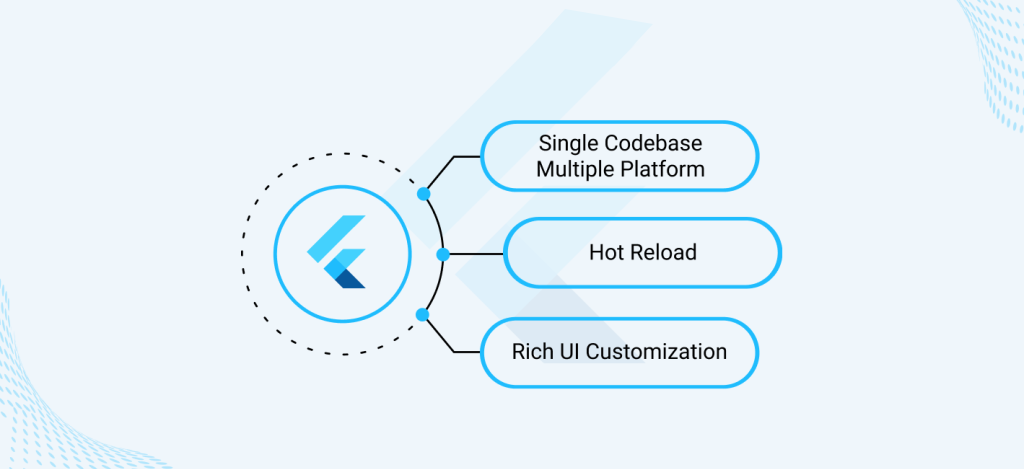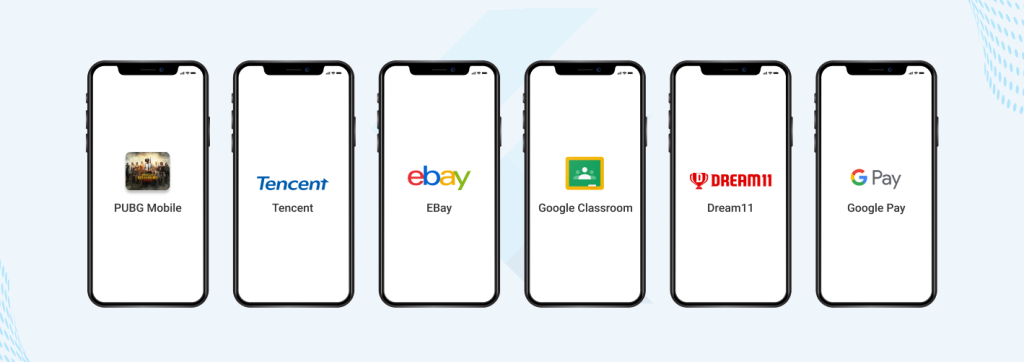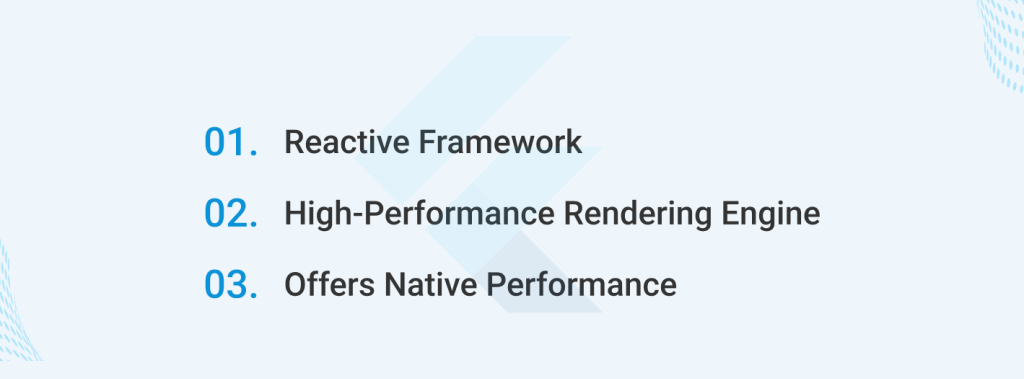In a world dominated by mobile applications, Flutter app development stands out as a game changer for the mobile industry. With its cross-platform functionality and exceptional user interface, Flutter is revolutionizing the way mobile apps are built. This high-performance framework, backed by Google, allows developers to create visually stunning apps for both iOS and Android platforms, reducing development time and cost significantly.
What sets Flutter apart is its hot reload feature, which enables developers to see changes in real-time and make adjustments on the fly. This rapid prototyping capability makes for faster iterations and a smoother development process. Additionally, Flutter’s customizable widgets and rich libraries offer endless possibilities for creating unique and engaging user experiences.
From startups to large enterprises, Flutter has gained immense popularity, being adopted by renowned companies like Alibaba, Tencent, Google, Dream 11, and eBay. Its ability to deliver high-quality apps with a single codebase has not only saved time and resources but has also opened new doors for innovation within the mobile industry.
As Flutter continues to evolve, it’s evident that this powerful framework will reshape the future of mobile app development, providing developers with the tools they need to create exceptional apps that stand out in the crowded marketplace. So, if you’re looking to build cutting-edge mobile applications, Flutter is the way to go.
The Advantages Of Flutter App Development

Flutter offers numerous advantages that make it an attractive choice for app development. Primarily, its cross-platform nature allows developers to write code once and deploy it on multiple platforms, saving time and resources. This eliminates the need to build separate apps for iOS and Android, streamlining the development process.
Secondly, Flutter’s hot reload feature is a game changer for developers. It enables them to see changes in real time and make adjustments on the fly. This rapid prototyping capability makes for faster iterations and a smoother development process. Developers can experiment with different designs, layouts, and functionalities, resulting in a more refined and polished app.
Another advantage of Flutter is its customizable widgets and rich libraries. These resources offer endless possibilities for creating unique and engaging user experiences. Developers can easily customize the look and feel of their apps, ensuring a seamless and intuitive user interface.
Case Studies Of Successful Flutter Apps

Flutter has gained immense popularity across various industries, with many successful apps built using this framework.
01. Alibaba
Alibaba app is one of the largest e-commerce platforms in the world. Flutter’s ability to deliver high-quality apps with a single codebase allowed Alibaba to develop a visually appealing and feature-rich app for both iOS and Android platforms.
02. Tencent
Tencent, another tech giant, also adopted Flutter for their app development needs. They built a video conferencing app that seamlessly integrates with their existing platforms. Flutter’s cross-platform capabilities and performance optimization ensured a smooth user experience, making it a preferred choice for Tencent.
03. PUBG Mobile
Speed and performance: PUBG Mobile is a very demanding game that requires a lot of processing power. Flutter’s ability to render high-quality graphics at 60 frames per second on both Android and iOS devices is essential for providing a smooth and immersive gaming experience.
Hot reload: Hot reload is a feature of Flutter that allows developers to make changes to their code and see the results instantly in the app. This is very helpful for debugging and quickly iterating on new features.
Customization: Flutter’s widgets are highly customizable, which allows PUBG Mobile to create a unique and visually appealing look and feel.
04. Google Classroom
Performance: Google Classroom is a web and mobile app that is used by millions of teachers and students around the world. Flutter’s performance allows Google Classroom to be responsive and easy to use, even on devices with limited resources.
Google Classroom is written in Flutter, which means that there is a single codebase for both the web and mobile apps. This saves Google a lot of time and money in development and maintenance costs.
Hot reload is used in the Google Classroom app to quickly make changes to the app and see the results instantly. This is very helpful for fixing bugs and adding new features.
05. Dream11
Dream11 is a fantasy sports platform that requires a lot of data to be processed in real-time. Flutter’s speed and performance allow Dream11 to provide a smooth and responsive user experience for its millions of users.
Customization: Flutter’s widgets are highly customizable, which allows Dream11 to create a unique and visually appealing app that matches its brand identity.
Hot reload is used by Dream11 developers to quickly make changes to the app and see the results instantly. This is very helpful for fixing bugs and adding new features during live tournaments.
06. eBay
eBay is an online marketplace with millions of products listed on its platform. Flutter’s performance allows eBay to provide a smooth and responsive user experience for its users, even when they are browsing a large number of products.
07. Google Pay
Google Pay is a mobile payment service that handles sensitive financial information. Flutter’s security features help protect users’ data from unauthorised access.
Google Pay needs to be able to process payments quickly and reliably. Flutter’s performance allows Google Pay to do this without sacrificing the user experience.
Flutter is a powerful and versatile framework that can be used to build successful mobile apps across a variety of industries. The apps mentioned above are just a few examples of how Flutter is being used to change the mobile industry. As the framework continues to mature, we can expect to see even more innovative and groundbreaking apps built with Flutter in the future.
Key Features and Capabilities of Flutter

Flutter comes packed with several key features and capabilities that make it a powerful framework for app development. One of its standout features is its reactive framework. Flutter uses a declarative approach, where the UI is built using a series of widgets. These widgets are customizable and can be easily composed to create complex user interfaces.
Another important feature of Flutter is its high-performance rendering engine. It uses Skia, a powerful graphics engine, to create smooth and visually appealing apps. This ensures that apps built with Flutter have a consistent and polished look across different devices and screen sizes.
Flutter also offers native performance, thanks to its direct compilation of native ARM code. This allows Flutter apps to run at native speeds, providing a seamless user experience. Additionally, Flutter supports platform-specific APIs, giving developers access to device features and capabilities.
Getting Started with Flutter App Development
Getting started with Flutter app development is relatively easy. To begin, developers need to install the Flutter SDK and set up their preferred development environment, such as Android Studio or Visual Studio Code. Flutter provides comprehensive documentation and tutorials to help developers get up to speed quickly.
Once the development environment is set up, developers can start creating their first Flutter app. Flutter’s hot reload feature allows developers to see changes in real time, making it easy to experiment and iterate. Developers can use Flutter’s rich set of widgets and libraries to build the user interface and add functionalities to their app.
Once the development environment is set up, developers can start creating their first Flutter app. Flutter’s hot reload feature allows developers to see changes in real time, making it easy to experiment and iterate. Developers can use Flutter’s rich set of widgets and libraries to build the user interface and add functionalities to their app.
Best Practices For Flutter App Development
To ensure the success of a Flutter app, developers should follow certain best practices. Firstly, it’s important to plan and design the app carefully before diving into development. This includes creating wireframes, defining the app’s architecture, and identifying the key functionalities.
Secondly, developers should leverage Flutter’s customizable widgets and rich libraries to create a unique and engaging user interface. They should carefully choose the right widgets and design patterns to ensure a consistent and intuitive user experience.
It’s also crucial to test the app thoroughly before releasing it to the market. Flutter provides testing frameworks like Flutter Test and Widget Test that help developers write automated tests for their apps. Testing ensures that the app functions as expected and provides a bug-free experience to users.
Tools and Resources for Flutter App Development
Flutter offers a wide range of tools and resources to aid developers in their app development journey. Flutter SDK provides the necessary tools and libraries to build, test, and deploy Flutter apps. It includes the Flutter framework, the Dart SDK, and various command-line tools.
For IDE support, developers can choose from popular options like Android Studio and Visual Studio Code. These IDEs provide a rich set of features and plugins specifically designed for Flutter development, making the development process more efficient.
Flutter also has a vast collection of packages and libraries available through Pub, the package manager for Dart. Developers can easily integrate these packages into their apps to add functionality and enhance the user experience. The Flutter community actively contributes to Pub, ensuring a wide range of options for developers.
Challenges and Limitations of Flutter App Development
While Flutter offers numerous advantages, it also has its share of challenges and limitations. Firstly, since Flutter is a relatively new framework, finding experienced Flutter developers may be a challenge. However, the growing popularity of Flutter is slowly addressing this issue, with more developers acquiring Flutter skills.
Secondly, Flutter’s performance can be affected by device limitations. Although Flutter provides native performance, it still relies on the underlying hardware capabilities. Apps with heavy graphics or complex animations may experience performance issues on low-end devices.
Flutter also has some limitations when it comes to accessing platform-specific features. While Flutter provides plugins to access native features, the availability and functionality of these plugins may vary. Developers may need to write platform-specific code to access certain features, which can increase development complexity.
Future Trends In Flutter App Development
As Flutter continues to evolve, several trends are emerging in the Flutter app development space. Firstly, the Flutter community is actively working on improving the performance and stability of Flutter apps. This includes optimizing rendering performance, reducing app size, and enhancing memory management.
Secondly, there is a growing interest in Flutter for web and desktop app development. Flutter’s cross-platform capabilities make it an attractive choice for building apps beyond mobile platforms. The Flutter team is actively working on expanding Flutter’s reach to the web and desktop, opening up new possibilities for developers.
Another trend is the integration of machine learning and artificial intelligence capabilities into Flutter apps. Developers are exploring ways to leverage Flutter’s flexibility and performance to build intelligent apps that can process and analyze data in real time.
Final Thoughts
Flutter app development is revolutionizing the mobile industry with its cross-platform functionality, exceptional user interface, and rapid development capabilities. Flutter’s advantages, such as hot reload, customizable widgets, and rich libraries, make it a preferred choice for developers and businesses alike. With successful case studies, key features, best practices, tools, and resources, Flutter provides developers with the necessary tools to create cutting-edge and high-performance apps. While there are challenges and limitations, Flutter’s future trends promise exciting advancements in app development. So, if you’re looking to build exceptional mobile applications, Flutter is the way to go.
Choose Aipxperts As Your Flutter Development Partner!
Choose Aipxperts as Your Preferred Partner for Flutter App Development! Our experienced Flutter developers are committed to delivering top-notch solutions, ensuring affordability, reliability, and security. Leverage our expertise to gain a competitive advantage. Experience a seamless development journey and on-time delivery. Reach out to us today to kickstart your project!
Flutter App Development: Why Choose Flutter for Your Next Project | Choose top-notch Flutter development services with Aipxperts. Contact us for project estimates and enjoy a 15-day risk-free trial period.











